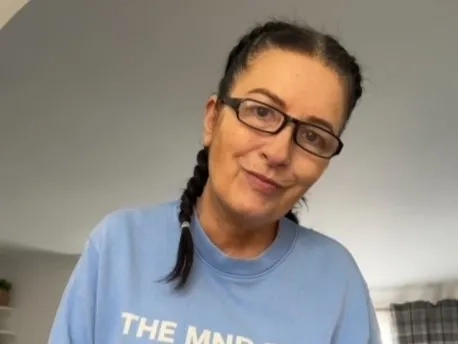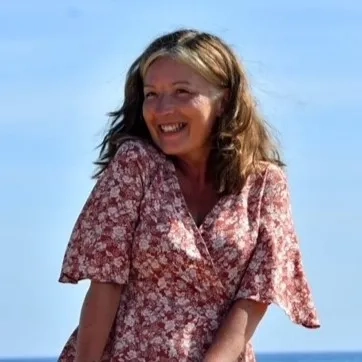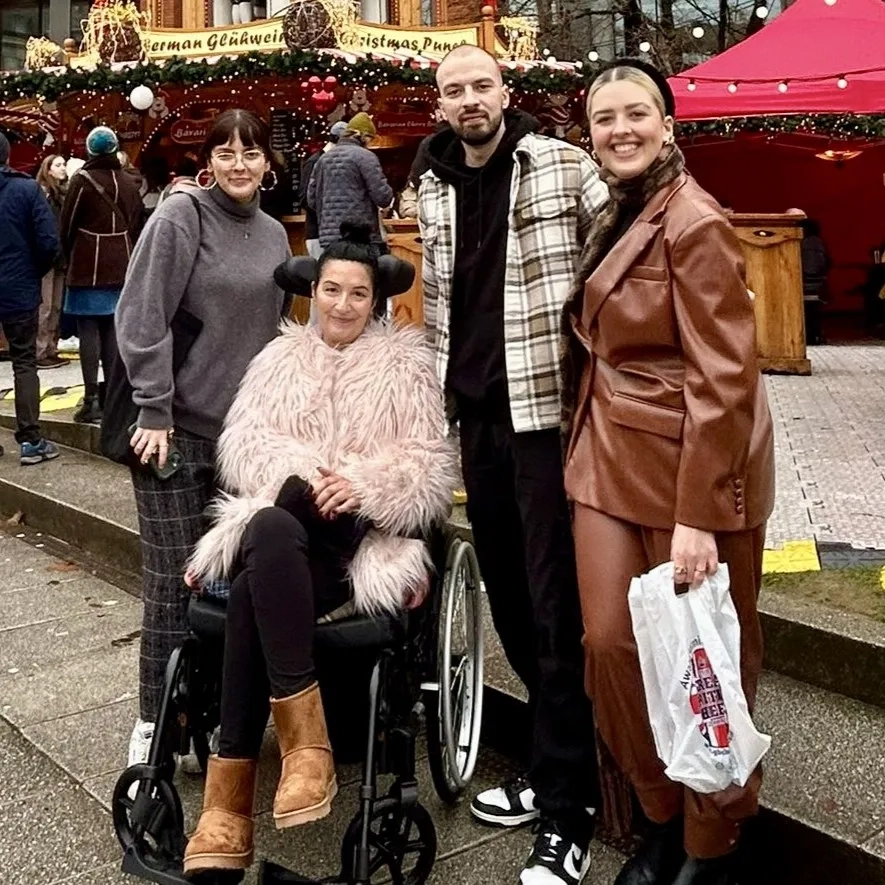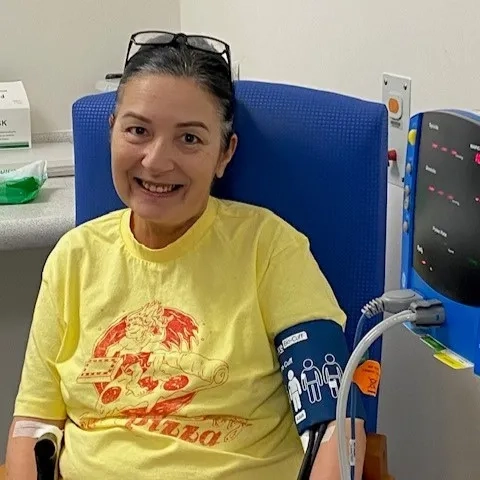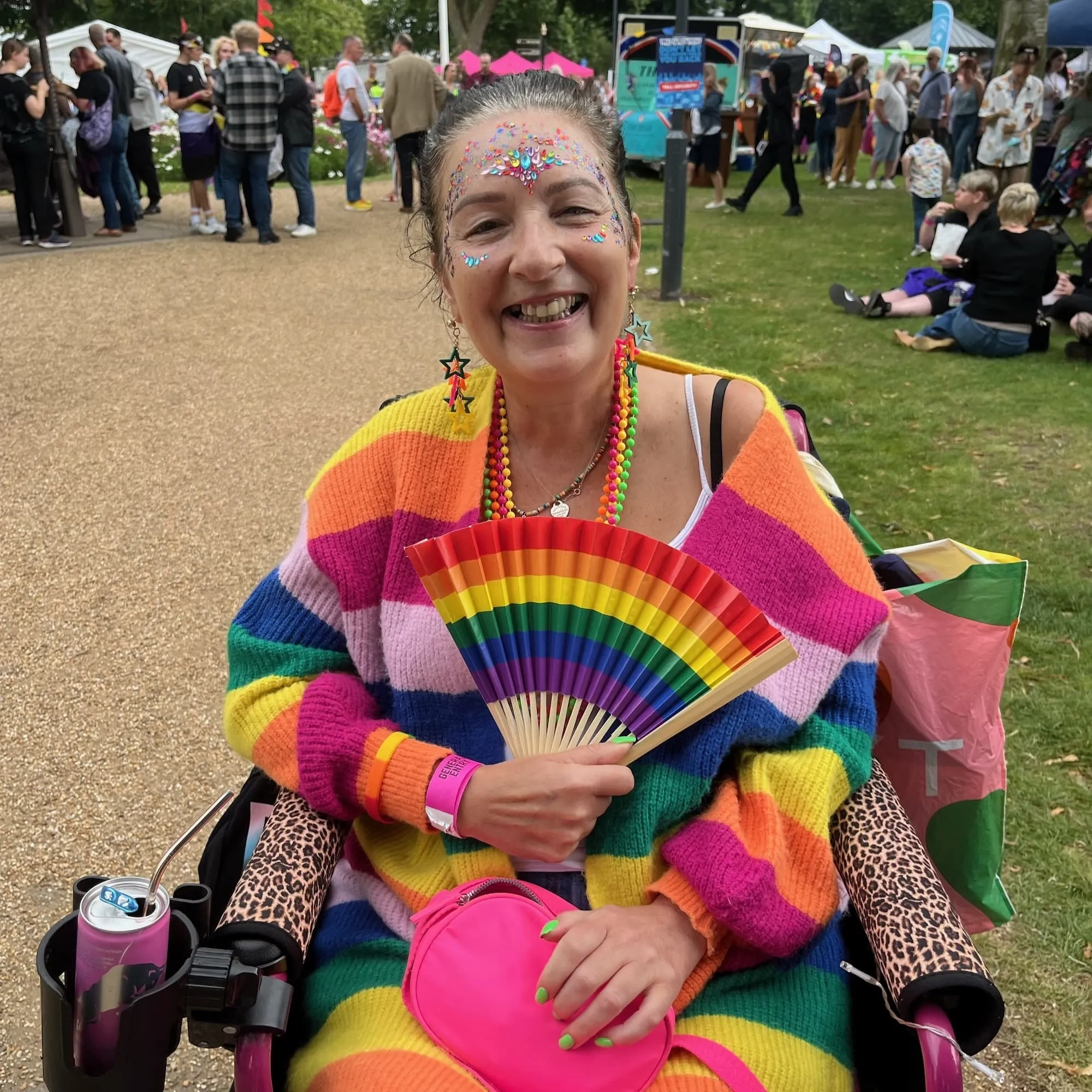It takes an average of 12 months to be diagnosed with MND - but for many, the wait can be much longer.
Because MND is so difficult to diagnose, people often face a long, uncertain journey for answers. Like Debbie (above), whose symptoms were wrongly put down to menopause, poor circulation and MS, wasting precious time before she eventually received her MND diagnosis. You can read more of Debbie's story below.
While people wait, the anxiety, fear and worry affects every area of their lives. Research is underway that could help develop an important lab test: one that could aid faster diagnosis by neurologists. But we need your help to keep it going.
Professor Jenna Gregory’s project at the University of Aberdeen has developed a new aptamer tool that could be used to uncover very early signs of MND.
What's an aptamer?
An aptamer is a chemical that’s designed and made by researchers to attach to a certain protein or structure within a cell. This makes it easier to identify or measure these proteins with a microscope.
The aptamer Jenna’s team has developed sticks to faulty clumps of a protein called TDP-43 that occurs in around 97% of people with MND. These clumps stop motor neurone cells from functioning properly, and cause problems with movement. The aptamer can also bind to very small clumps that are an early sign of cell damage.
Excitingly, this aptamer could be used in a lab test that aids faster diagnosis by neurologists. Further research is now needed to establish exactly what that test could be – for example, a blood test or a skin biopsy – and how it would work in tandem with other clinical criteria used to diagnose MND.
This could mean that in the future an MND diagnosis is no longer a lengthy process of elimination after symptoms have begun. And if doctors can get there sooner, people with MND could have longer to adjust to their diagnosis, make precious memories and access support.
It could also mean that people have the option to take part in clinical trials, before there’s so much damage to neurones. Most trials require people to be within two years of symptom onset. But for many, by the time they’ve been to their GP and waited for a diagnosis, it’s already too late.
Debbie's MND diagnosis journey
"I joined a menopausal Facebook group, put my symptoms in a post and they said, ‘Yeah, it’s menopause’. I went to the doctor, they did blood tests and told me to take vitamins D and C because I was low.
Then when I couldn’t push myself to standing, and had vertigo and dizziness, I went back to the doctors and had an MRI. Then I stopped being able to grip the stair bannister. One day I slipped, ending up in A&E. I also had some twitching, but I still thought it was menopause.
A neurologist told me, ‘I’m sorry, but it does look like you have MS, but you can lead a normal life’.
I was shocked and confused. I searched ‘twitching from weakness’ and one of the top results was MND. I joined the MND Association’s forum and read other people’s stories. I remember going to my friends crying saying, ‘I think I’ve got MND’."
Read more of Debbie's story
"It was while waiting for results of more tests I was told I’d now be seeing an MND specialist at the MND clinic. While they said it didn’t necessarily mean I had MND, I just knew.
When the doctor told me, I was prepared. I knew it’s a process of elimination, with every test crossing off a different condition. You keep going until you get to MS, Parkinson’s and eventually MND.
One of the first things I did was bank my voice. The MND Association paid for it and I’m forever grateful. They also helped me with a rented stairlift that makes a massive difference to day-to-day life. I feel very lucky – not everyone is diagnosed soon enough to access support like this.
I’m also lucky I was diagnosed in time to join clinical trials. I’ve volunteered for three so far and it hasn’t always worked out, but I’m happy to try. It gives me hope. And at the end of the day, research is the only way we’ll make things better."
Quicker diagnosis. Faster research progress. Less time lost. Your support could make it possible.
Together we could drastically shorten the time it takes to diagnose MND.
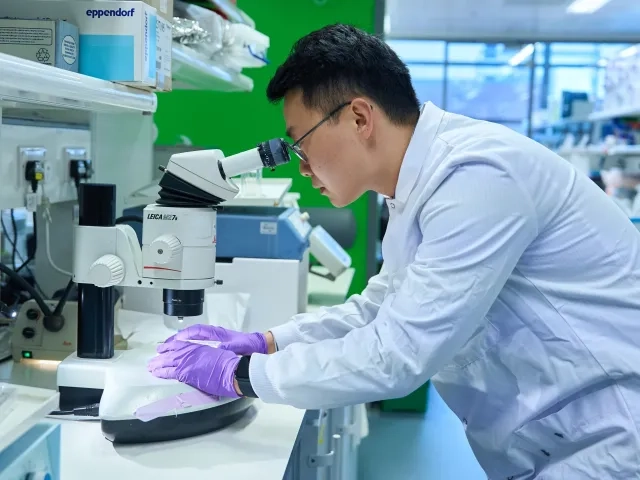
£20
could help fund more research projects like Jenna's and help neurologists diagnose MND sooner.
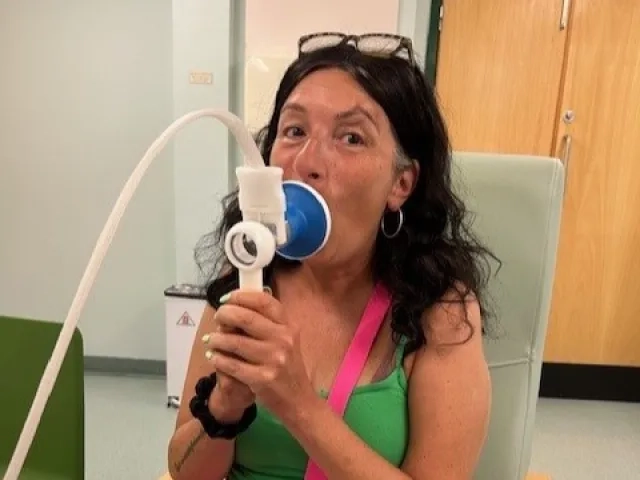
£50
could help someone like Debbie take part in a clinical trial before there's excessive damage to motor neurones.
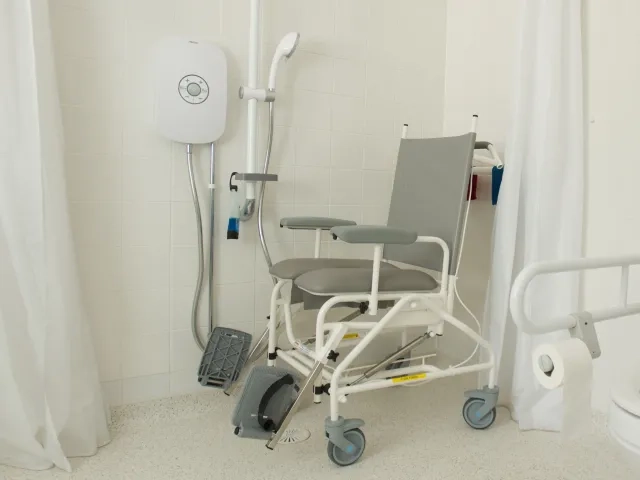
£100
could help someone like Debbie access financial support sooner, so they can make key adaptations to their home.
